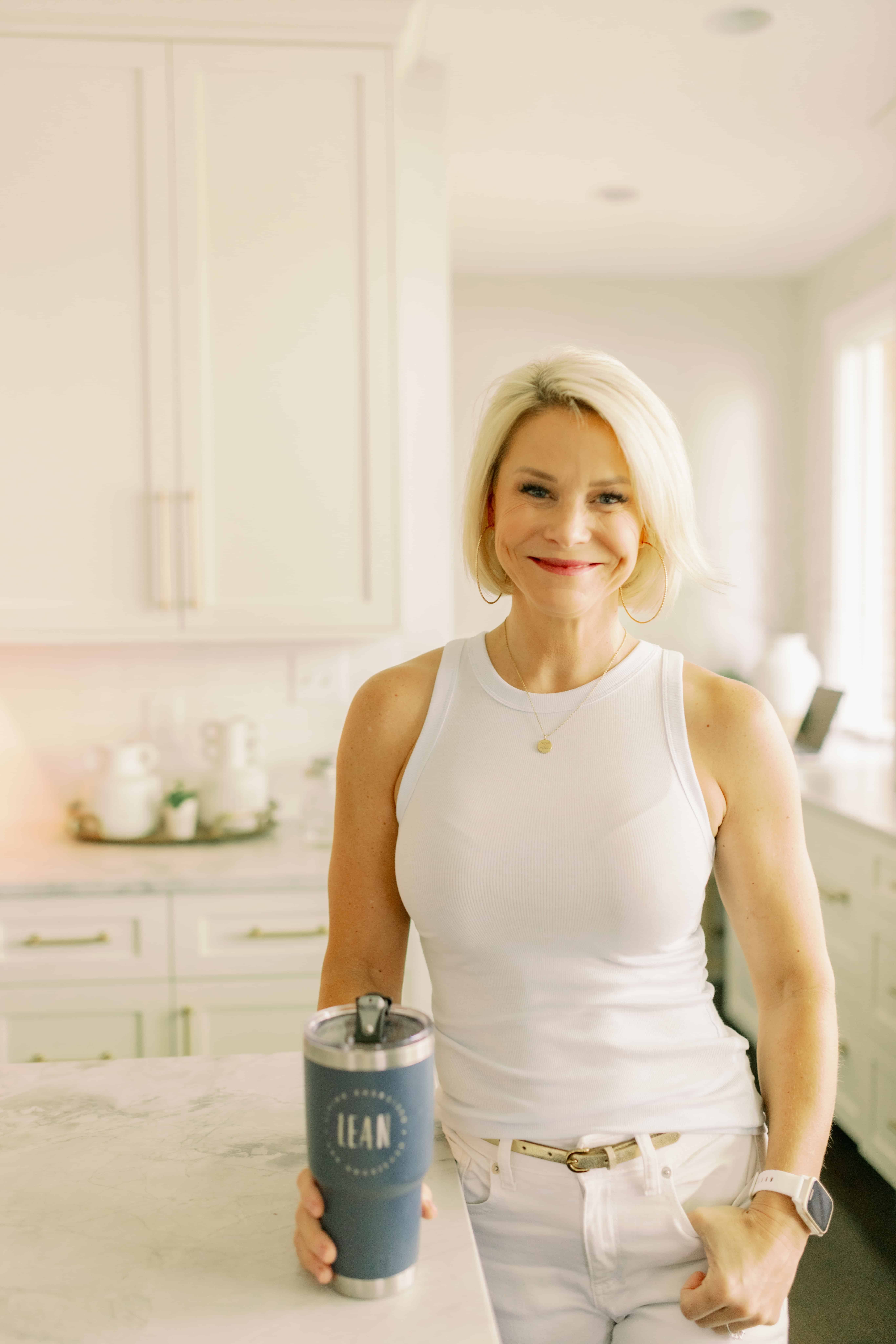On January 1st, 2020, over 39 million Americans set the goal to lose weight.
It turns out that only a small fraction of people (about 7% in 2019) actually stick with their new year’s resolutions.
My question is why?
Why do we continue to fail at meeting our health goals? Why do we start so strong and barely make it to the finish line?
It reminds me of something James Clear wrote about in his book Atomic Habits—that our goals are actually failing us and systems might be the solution to this problem. After thinking more about it, I agree with this idea, and here’s why…
What could be better than goals?
Like gelatin in a 1950s cookbook, goal-setting has been given too many roles. Goals are good only to an extent. When they start to become our entire lives, that’s when goals start to fail us.
Setting goals can help bring clarity to our health journeys. They can point us in the right direction and help us see when we’re making progress, but the role of goals in our health journeys ends there. Goals are signposts, not steam engines.
Systems, on the other hand, will keep you moving and progressing at a steady pace and enjoying the journey as you go.
What’s the difference between a goal and a system?
A goal is a result that you want to achieve. It’s your desired outcome. For example, you might have the goal of losing 10 pounds, landing a particular job, or spending more time with your kids.
A system is a process that leads to your goals and beyond them, a collection of daily habits that allow you to progress.
It’s this commitment to the system that will determine your progress in life, not your goals. 100 people might have the goal to land a particular job, but only one gets the offer. Goals don’t determine what our future looks like. Our systems, or the steps we take each day, will.
So why can systems do what goals can’t?
When you find yourself giving up on your goals, you’re probably over-stretching your goals’ roles. Here are three reasons why you should switch your focus to systems:
A goal gives us tunnel vision
Have you ever had the goal to lose 5 pounds? If so, this may sound familiar to you. You set the goal, but you don’t feel like you’ve succeeded until the moment you step on the scale and the number has dropped by 5 pounds. Up until that point, you felt like you were fighting and failing—not yet at your goal weight and, therefore, not yet successful.
With your eyes fixed on your goal, perhaps you didn’t pay much attention to the process that got you there. Maybe you under-ate in order to reach your goal. Maybe you exercised way too hard or didn’t go out with your friends because you had already hit your calorie limit for the day. With goal-focused tunnel vision, it’s easy to make unhealthy decisions to make sure we cross our finish line.
Because your method of reaching your goal wasn’t good for your body, eventually, you couldn’t keep it up anymore. You couldn’t stay hungry and not binge on sugar and carbs. Your body was too sore to keep hitting the gym day after day. You didn’t want to keep saying no to your friends, so you just gave up on your goals altogether.
So often we set good goals but don’t set up good systems. Healthy systems, like intermittent fasting, finding exercise we enjoy, sleeping full nights, and staying hydrated, enable us to not only reach the goal but enjoy the journey and continue to progress in our health and future weight loss.
Meeting a goal doesn’t always make you happy
Have you ever felt deflated after reaching a goal? Those moments in our health journey can feel anticlimactic because goals aren’t supposed to satisfy us. They’re simply signposts that tell us we’re moving in the right direction in our lives and our health.
The times when we don’t meet our goals can be devastating. In our health journey, it’s easy to throw in the towel after one mistake and fall into the all or nothing mindset—a health-sabotaging attitude that makes us think we have to live healthily 100% of the time or it’s worthless.
James Clear explains it this way: “When you fall in love with the process rather than the product, you don’t have to wait to give yourself permission to be happy. You can be satisfied anytime your system is running.”
Creating healthy systems that you love will quiet your craving for the final goal. Falling in love with the process will allow you to feel satisfied with the daily journey.
Goals can hinder long-term progress
Goals can’t be the finish line ribbon—they’re mile markers. While helpful in their own way, goals can stand in the way of true progress and growth if they limit your vision to a specific endpoint.
When our minds are fixed on our goals, it’s easy to fall back into old habits after we reach them. If, though, you are depending on healthy systems to carry you forward, you’ll make long-term progress. Your systems will help you stay fit, live longer, feel better, and keep healthy habits for a lifetime.
Focusing on healthy systems will motivate you to grow far beyond your goals, help you run that 5K, then have you finishing 10Ks and maybe even a marathon one day.
What System Will Help You Succeed?
Sit down with a hot drink, a notebook, and a pen. Write down the collection of habits you can start practicing now so that 2022 is a year full of health and happiness. Then fill them into our free habit tracker and fall in love with the process.
Need some help setting up those healthy systems? Sign up for the LEAN Newsletter or join a LEAN Session and walk your health journey with us.





